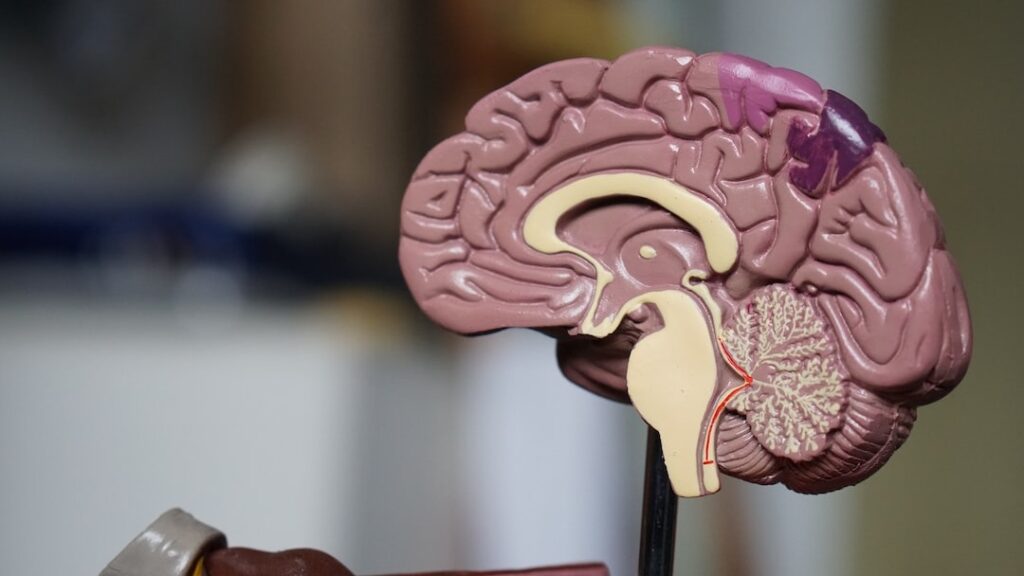Healing is a complex process that is unique for each individual. To find the healing and recovery process that works best, It is important to learn about an array of treatments and therapies. What’s more, one must learn about oneself on a deeper level in order to curate a personalized healing plan. First Steps Recovery offers a variety of services for numerous substance use and mental health disorders. While not a mainstream service offered at First Steps Recovery, transcranial magnetic stimulation (TMS) therapy is an option for clients. TMS therapy has a number of benefits and is especially useful for clients struggling with depression.
What Is TMS Therapy and Who Might Benefit From This Therapy?
TMS therapy is an alternative service for clients with major depressive disorder who have not experienced effective results with antidepressants. This therapy uses magnetic fields to stimulate brain cells in a non-invasive manner and is typically only used when other more traditional methods of treatment for depression have not been effective. TMS therapy is a safe practice that is FDA-approved for depression treatment.
TMS therapy is typically administered in a series of 20 to 30 sessions over as little as one week to as many as six to eight weeks. Each session lasts between three minutes and 40 minutes. An electromagnetic coil is placed against one’s head and pulses are delivered to stimulate nerve cells. These pulses target a part of the brain that is responsible for controlling one’s mood, which is the dorsolateral prefrontal cortex. The stimulation helps enhance control over depressive symptoms, improving one’s mood overall.
Clients are awake for the session’s duration while the TMS device taps on the scalp over the targeted region. During the session, clients can feel the taps and also hear clicking sounds when pulses are administered.
What Are the Benefits of TMS Therapy?
TMS therapy is mainly beneficial for clients with depression. However, this service may also benefit those with obsessive-compulsive disorder (OCD) and post-traumatic stress disorder (PTSD). For clients who are resistant to the traditional forms of treatment and therapy, TMS is often successful. The success rate ranges from 50-55% percent. TMS helps treat the dysregulation of behavior and mood at the neuronal level.
Clients with depression struggle with a number of symptoms and feeling states. These include:
- Sadness
- Hopelessness
- Worthlessness
- Disinterest in hobbies and activities
- Lack of energy
- Spending more time sleeping
- Difficulty concentrating/thinking
- Suicidal thoughts or ideation
TMS therapy works to improve these mood-based symptoms, therefore improving one’s behaviors and overall mental well-being. TMS therapy is a slow process that takes patience. This is true of any other treatment or therapy clients partake in for their substance use or mental health disorders.
What Treatments and Therapies at First Steps Recovery Pair Well With TMS?
While TMS therapy is an alternative method of treating depression, it is important for clients to incorporate multiple therapies for optimal results. Depression often co-exists with other disorders such as substance use disorder (SUD), alcohol use disorder (AUD), or other mental health disorders like anxiety. Thus, having TMS therapy working simultaneously with other services helps clients achieve a whole-person healing effect.
It is important that clients not take medications, including antidepressants, if they are currently using TMS. This is because TMS works as a “replacement” for those interventions. However, there are still a variety of therapies offered at First Steps Recovery that can be used alongside TMS. These therapies range from clinical approaches to holistic care, including:
- Individual therapy
- Group therapy
- Cognitive-behavioral therapy (CBT)
- Dialectical behavior therapy (DBT)
- Trauma-informed therapy
- Brainspotting
- Neurofeedback
- Family counseling
- Eye movement desensitization and reprocessing (EMDR)
- Experiential therapies
- Art therapy
- Equine therapy
- Wilderness therapy
- Music therapy
- Yoga therapy
- Recreation therapy
- Physical therapy
- Mindfulness therapy
How a Multifaceted Approach With TMS Therapy Heals Depression
While TMS works on the neuronal level, clients can partake in individual therapy and CBT to express themselves and work through the underlying causes of their mood issues. Clients learn how to receive feedback, express themselves to others, and construct healthy behaviors as their mood simultaneously improves. TMS clients also learn healthy coping mechanisms to practice that lead to healthier behaviors overall. A single therapy, whether it is TMS or not, cannot usually produce healing by itself.
Holistic care options such as yoga, art, and music therapies work well for depression as they encourage clients to express themselves through various means. In yoga therapy, clients move their bodies to improve strength and flexibility while letting go of difficult feelings to promote a sense of inner peace. Art and music therapies allow clients to creatively express themselves. These creative therapies provide a healthy outlet to turn to when difficult feelings surface.
Recovery consists of multiple elements. Taking advantage of available services helps clients understand what components of treatment are necessary for their healing. A combination of clinical, holistic, and alternative services is important in creating a healthier, happier lifestyle that supports sobriety and mental well-being.
Here at First Steps Recovery, we understand that certain clinical approaches to healing substance use disorders (SUDs) and mental health disorders are not for everyone. Each client is different, and finding the right combination of services is key to improvement. Transcranial magnetic stimulation (TMS) therapy is one of these alternative approaches. TMS is used with clients suffering from depression as magnetic pulses stimulate the part of the brain controlling mood. Clients partake in TMS over a series of 20 to 30 sessions. First Steps Recovery recommends that various therapies and treatments be combined for the most effective whole-person healing. Please call us at (844) 489-0836 to learn more about TMS therapy and other services for addiction and mental health recovery.







